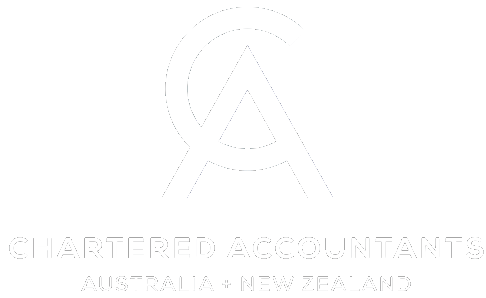
Welcome to our special edition of the StewartBrown newsletter where we will keep you informed and updated with the latest tax and Government assistance package developments as they arise.
ASSISTANCE TO COPE WITH THE EFFECTS OF THE CORONAVIRUS (COVID-19)
FEDERAL GOVERNMENT STIMULUS PACKAGE
The Australian Federal Government has just released a $17.6 billion economic stimulus package. The package has been marketed as a measure to protect the economy by maintaining confidence, supporting investment and keeping people in their jobs.

Welcome to our March 2020 edition of the StewartBrown newsletter. We hope to keep you informed of the important tax developments and issues affecting taxpayers and businesses in Australia today.
LIMITING TAX DEDUCTIONS FOR VACANT LAND
In the 2018–19 Federal Budget the Government announced that it would limit deductions for expenses associated with holding vacant land. Provisions to give effect to these changes are contained in Treasury Laws Amendment (2019 Tax Integrity and Other Measures No.1) Act 2019 which received royal assent on 28 October 2019.
The changes apply to limit the tax deductions that can be claimed for holding vacant land incurred on or after 1 July 2019, even if the land was held before that date.

Welcome to our February 2020 edition of the StewartBrown newsletter. We hope to keep you informed of the important tax developments and issues affecting taxpayers and businesses in Australia today.
END OF AUSKEY- MARCH 2020
If you or your business have historically been using AUSkey to access Government portal and websites, you will need to make changes before March 2020 as Auskey is being decommissioned. The new replacement service is called myGovID. It will continue to be a secure login that identifies an individual operating on behalf of a business when using Government online services.
The ATO is managing the new myGovID credential exclusively on behalf of Government after being chosen as the Commonwealth's identity provider earlier last year.

WELCOME
Welcome to the special Land Tax edition of our client newsletter for 2020 where we hope to keep you informed of the important land tax compliance issues affecting owners of land in Australia. Remember that Land Tax is a State tax and different rules apply in each State. In this newsletter we have summarised the position in NSW. If in any doubt about your particular land tax circumstances, please contact your StewartBrown Partner or Manager.
NSW LAND TAX REMINDER – ACTION REQUIRED BY 31 MARCH 2020
Land Tax 2020 – Registration Form

Welcome to our December 2019 edition of the StewartBrown newsletter. We hope to keep you informed of the important tax developments and issues affecting businesses in Australia today.
STEWARTBROWN – CHRISTMAS CLOSURE
We advise that the StewartBrown offices will be closed during the holiday period as follows:
Office closes from 5.30pm Thursday, 19 December 2019
Office reopens on Monday, 6 January 2020
The Partners and staff of StewartBrown take this opportunity to wish all our clients and business associates a very merry Christmas and a joyful New Year.
TAX ON CHRISTMAS PARTIES/GIFTS
Income tax, FBT and GST are all relevant considerations when these types of events and benefits are provided. We have written articles concerning these matters in previous newsletters so would refer you to them for more information. If you would like a copy please ask your StewartBrown Partner or Manager for one.

Welcome to our November 2019 edition of the StewartBrown newsletter. We hope to keep you informed of the important tax developments and issues affecting businesses in Australia today.
SALARY SACRIFICING AND THE SUPERANNUATION GUARANTEE – ***IMPORTANT CHANGES ***
From 1 January 2020, where an employee salary sacrifices any part of their salary into superannuation, these contribution amounts will also be subject to the 9.5 per cent superannuation guarantee (“SG”) requirement. This means that salary sacrificed amounts will be included as Ordinary Times Earnings for the purpose of the SG and that the salary sacrificed amount will not count towards the required SG obligations. Employers will need to update their accounting systems to comply with the new law by 1 January 2020.

Welcome to our September 2019 edition of the StewartBrown newsletter. We hope to keep you informed of the important tax developments and issues affecting businesses in Australia today.
STOP PRESS – SINGLE TOUCH PAYROLL (“STP”) ACTION REQUIRED BEFORE 30 SEPTEMBER
As reported in our July 2019 newsletter and our special STP newsletter of June 2019, employers are required to register with the ATO by 30 September 2019 (at the latest). According to the ATO less than half of employers had registered for STP by the end of July 2019. If you have not already done so please attend to this ASAP and seek assistance from your StewartBrown Partner or Manager if you need any assistance with STP.
NO TAX DEDUCTION FOR NON COMPLIANT PAYMENTS
From 1 July 2019, tax deductions will not be allowed for payments that Pay-as-you-go with-holding (“PAYGW”) obligations relate to if the payer either fails to withhold that tax or notify the Tax Commissioner concerning same. These measures apply to:
salary, wages, commissions, bonuses or allowances to employee;
directors’ fees;
payments under a labour hire arrangement;
payments for supply of services (except from supplies of goods and real property) where the payee has not quoted its ABN; or
non-cash benefit provided in lieu of one of the above.
Tax Deduction
A tax deduction will only be denied where:
no amount has been withheld at all; or
no notification is made to the Commissioner.
Withholding or notifying the ATO of an incorrect amount will not affect tax deductibility however penalties may apply!
These rules do not apply to an obligation to withhold or report a nil amount.
A tax deduction that would otherwise be denied by these measures, will be maintained in the original income year if the taxpayer voluntarily notifies the ATO of the mistake before an ATO audit commences.
With the introduction of Single Touch Payroll it is a lot easier for the Tax Office to monitor and review non payment of PAYGW and the reporting of those obligations. If you need any assistance with these responsibilities please contact your StewartBrown Partner or Manager.
DIRECTORS PENALTY REGIME - UPDATE
The Directors Penalty Regime allows the Tax Commissioner to make directors of a company personally liable for specified taxation liabilities of the companies they represent through the issue of a Director Penalty Notice (“DPN”). A DPN imposes the penalty on the directors of a company that fails to pay Pay-as-you-go with-holding taxes (“PAYGW”) and Superannuation Guarantee Charges (“SGC”). Unpaid FBT, GST and corporate income tax are not currently covered by these regulations. The amount of the director penalty notice is the amount of unpaid liabilities for PAYGW or SGC.
Former company directors remain liable for DPN penalties equal to any unpaid PA

This special edition of our newsletter is to remind you of your 2019 financial year employer obligations and provide you with an update on employment matters:-
IMPORTANT CONSIDERATIONS
1. SINGLE TOUCH PAYROLL ("STP")
STP is a Government initiative to further simplify business reporting obligations. It is a mandatory reporting requirement for employers and will require employers to report payments such as salaries and wages, pay as you go (PAYG) withholding and superannuation information to the Australian Taxation Office (“ATO”) directly from their payroll systems at the same time employees are paid. It will eventually apply to every payroll system in Australia.

The Federal Budget has been delivered and has focused on infrastructure and essential services spending as well as income tax relief for low and middle income earners and business tax relief. Unsurprisingly (on the eve of a federal election), the budget is a somewhat safe and uneventful one, and rather than containing any major changes to the current tax base, has focused on minor tweaks and changes to what we already have.
As with all Budgets, these are announcements only and have not been legislated. The details are still to be worked through, and both Houses of Parliament need to pass legislation before the announcements take effect. Parliament won’t consider these announcements until after the Federal election, expected in May this year, so more than normal, the passage from announcement to legislation is uncertain.

The FBT year ends on 31 March 2019 and each employer is required to calculate their liability for FBT. Where a liability for FBT exists, an annual return is required to be lodged and any tax paid by 21 May 2019. However, if the return is lodged electronically by a Tax Agent the due date of lodgement is 25 June 2019 while the payment due date is 28 May 2019.

In our May 2018 special edition newsletter, we discussed the tax policies of the major political parties in Australia at that time. This was back when newspapers and online media were fervently covering the major issue being proposed by the Labor party; that of cancelling tax refunds arising from excess imputation (or franking) credits.
As the Federal election is drawing ever nearer (and the prospect of a change in Government seems ever more likely!) we thought that we should revisit some of the more significant policy proposals as some of you may be substantially affected by them if they become law (and could apply from 1 July this year!)
StewartBrown
ABN: 63 271 338 023
Level 2, Tower 1,
495 Victoria Avenue
Chatswood, NSW, 2067
Stewart Brown Advisory Pty Ltd
ABN: 19 143 011 750
AFSL: 355134
Level 2, Tower 1,
495 Victoria Avenue
Chatswood, NSW, 2067

StewartBrown
ABN: 63 271 338 023
Level 2, Tower 1,
495 Victoria Avenue
Chatswood, NSW, 2067
Stewart Brown Advisory Pty Ltd
ABN: 19 143 011 750
AFSL: 355134
Level 2, Tower 1,
495 Victoria Avenue
Chatswood, NSW, 2067










